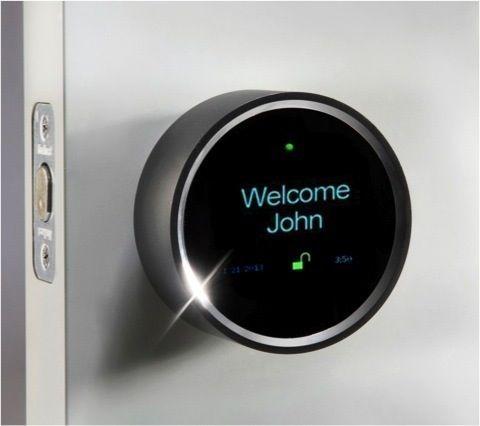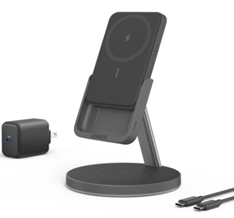The smart lock space is suddenly crowded with competitors, each of which want consumers to see their offering as the best way to use a mobile phone to replace the traditional door key.
But with the unveiling of its own smart lock, and an Indiegogo crowdfunding campaign, the San Francisco startup Goji may have staked out the most desirable position in the space.
Several companies -- including Lockitron, Kwikset and August -- have all announced various approaches to home door locks that can be accessed from a mobile phone. Common features include being able to tell remotely if the door is locked -- and locking it if not -- as well as letting the homeowners (or renters) who own the locks share access to friends, family, contractors, housekeepers, or others.
Goji's $278 lock has all the bells and whistles of its competitors, but assuming it is able to raise the money to go into production, it will offer several additional features that could vault it past its rivals.
Perhaps the most important, said CEO Gabriel Bestard, is that the Goji lock has a camera on it that can automatically send an alert, along with a photo, anytime someone activates the lock and goes through the door. That alert is texted, e-mailed, and made available through Goji's mobile app.

Like its competitors, Goji lets users send electronic access to anyone they want to be able to get into their house. But another unique feature is assigning specific time windows during which those outsiders can activate the lock. That's ideal, Bestard said, for someone with a dog walker, or a house cleaner who needs access to the house for only a set time period.
Looking at Goji's lock, one cannot help but see the inspiration of another smart home appliance, Nest's Learning Thermostat. And while Bestard said that the Goji design wasn't inspired by Nest's device, he did say that Goji followed Nest's lead on making it easy for those who don't feel comfortable doing the work themselves to get a qualified installer to come and hook it up.
Goji's lock communicates wirelessly with users' mobile phones -- locally using Bluetooth, and from afar by Wi-Fi. That means that if the home's power goes off for some reason, the lock's battery -- which is meant to last for a year -- should still operate it, although users would not be able to access the lock from far away. But in the case of a total power outage, the lock still works with a standard mechanical key.
Some people will want to install Goji locks on multiple doors, and Bestard said there is no problem synching a single mobile device to more than one lock. That's because, he said, the Goji lock comes with a proximity sensor that demands the key for a specific lock from the Goji mobile app.
At the same time, the app can manage multiple keys. In some cases, Bestard explained, the user will be the lock's "owner," meaning he or she can send digital keys to others. And in other cases, they won't have any such rights. A good example, he said, is that a person and his brother both have houses with Goji locks, and both share access to the other's house with each other. But each only has "owner" rights to their own house.
Bestard said that Goji is attempting to raise $120,000 with its Indiegogo campaign, and that if it is successful, that money will go toward production costs. The plan, he said, is to release the lock this holiday season. Bestard also said he is in advanced discussions with multiple venture capitalists, but that those potential investors want to see proof of market traction. He added that even without VC money, Goji is moving forward.
At $278 for a deadbolt lock, four digital keys, and two mechanical keys, the Goji is more expensive than, say, Lockitron's $179 device. And it's worth wondering if that extra $100 will be an impediment to some consumers, especially since Lockitron's lock should be available this summer.
Still, for anyone in the smart lock market, the ability to see a picture of who's going in or out of their house, and to assign timed access to others may well make it worth waiting a few extra months and spending $100 extra.









